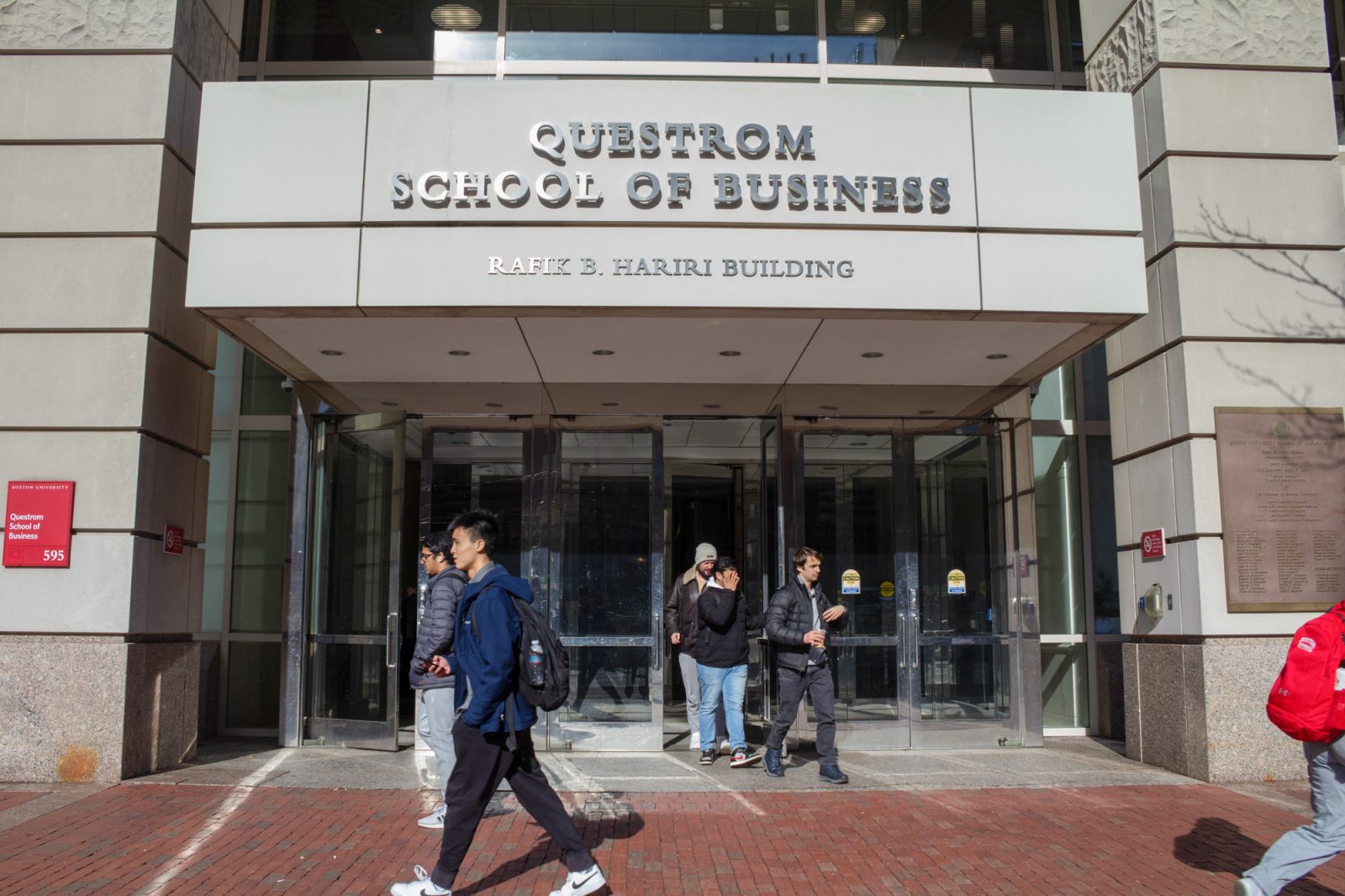The first course students take when they enter Questrom School of Business is SM131: Business, Ethics, and the Creation of Value. Now, BU is implementing new ways to actualize the principles students learn in the class.
Questrom recently announced the founding of the Ravi K. Mehrotra Institute for Business, Markets and Society — abbreviated IBMS — with an endowment received last year from Mehrotra, founder and executive chairman of the Foresight Group, a London-based private equity investment manager.

The institute’s goal is to examine the role businesses and markets play in solving global issues, using an approach that goes beyond traditional research. But students say they hope the institute’s focus on solving global issues extends beyond theory and has positive ethical impacts in the real world.
Paige Thompson, a sophomore in Questrom and the scholarship director for BU’s chapter of Alpha Kappa Psi, a professional co-ed business fraternity, said she wants the institute’s work to help incorporate more ethical perspectives into business education.
“We don’t necessarily think about ethics in every implication of what we’re learning,” she said.
Susan Fournier, the dean of Questrom and a professor of marketing, said the institute’s mission is threefold: to educate the public about business’ role in the world, to conduct research to understand its complexity and to fuel dialogue about the impact of business on society.
“Our mission as a school is to create value for the world through business,” Fournier said. “This institute really gets right into that mission.”
Thompson cited her generation’s belief that corporations wield social responsibility due to their large influence. However, she said that businesses’ actions are not born from social consciousness, but rather their desire “not to get canceled on Twitter.”
Emily Samaro, a sophomore in the College of Arts and Sciences who is currently enrolled in SM131, said that the IBMS gives students “the ability to look deeper into business.”
Like Thompson, Samaro said she believes that social media has pushed students to hold businesses to a much “higher standard.”
“I think having the ability and the resources through BU to look at that would be really helpful for students,” Samaro said.
The IBMS will provide a way to facilitate new discussions on complex issues in an age where people often see things as “black and white,” according to senior associate dean of faculty and research Marcel Rindisbacher, who acts as the co-director of IBMS.
“It’s interesting to really illustrate these kinds of tensions that exist,” Rindisbacher said. “When you really think about the big societal problems, business will always play a role in solving that, but it just has to be shaped in the right way.”
He cited the roll-out of the COVID-19 vaccine as an example of the complex interactions between government, markets and business.
“I hope that the Institute will really sort of be a platform where students can engage with faculty, also with business people in a new way,” Rindisbacher said.
Ryan Siracuse, a junior in Questrom, said that he hopes the institute will give students the opportunity to see if the ethical issues discussed in classes like SM131 are being taught in “a performative way or if it’s coming across genuine or not.”
“For a lot of business students, it’s hard to really take what’s said in the classroom about these very broad ideas and actually implement it day to day because the idea of business ethics is so broad,” Thompson said.
Rindisbacher said he hopes that students use the institute as a way to keep asking questions about the issues they find important.
“It’s good that people have a lot of questions,” he said. “Sometimes I fear that what we’re losing as a society is the civil discourse part and really engaging [in] conversations.”
The Institute will officially open in a two-day celebration starting on Sept. 19, Rindisbacher said.
“[The IBMS] is more about the world, the public, which includes students, and what we know to be bigger issues,” Fournier said. “And then we say, ‘Where can, maybe, we help?’”


























































































































